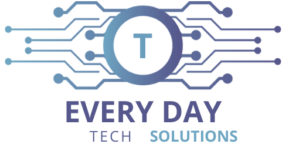Table of Contents
In recent years, there has been a growing concern about the rise of artificial intelligence (AI) and its potential to take over the world. But let’s separate fact from fiction, shall we? While AI has come a long way and has become a part of our everyday lives, it’s important to remember that we’re not living in a sci-fi movie. AI may be intelligent, but it’s a far cry from surpassing human intelligence.
Take, for example, AI tools like ChatGPT. They’ve certainly created a buzz and sparked debates about their potential, but they are still just tools. In the customer service realm, AI can be incredibly valuable in automating repetitive tasks and improving the overall customer experience. But it’s important to note that it still requires human involvement and input. AI should be seen as a means to enhance our abilities, not replace human interaction.
Key Takeaways:
- AI is not on the verge of taking over the world – it’s a tool we can use to improve our lives.
- ChatGPT and similar AI tools are valuable for automating tasks and enhancing customer service, but they rely on human input.
- AI should be integrated with our knowledge and skills to create a more powerful and efficient collaboration.
- Don’t believe the hype – AI is here to augment, not replace, human capabilities.
- Let’s embrace AI’s potential while ensuring it remains a tool in our hands.
The Evolution of AI and its Business Implications: Embracing Change and Leveraging AI Technology
As AI technology continues to evolve, businesses must adapt and embrace this revolution in order to stay competitive. The impact of AI is far-reaching and has the potential to transform industries and change the way we work. It is important for organizations to understand the business implications of AI and leverage this technology to their advantage.
The AI revolution has been years in the making, with significant advancements made in recent times. Companies like Elon Musk’s Tesla and Google have invested heavily in AI research and development, driving the progress we see today. However, the democratization of AI technology means that small and mid-sized businesses can also benefit from its capabilities. Generative AI tools like ChatGPT have become affordable and accessible, empowering businesses to leverage AI for various applications.
By embracing AI technology, businesses can unlock its potential to analyze customer data, improve decision-making processes, and automate repetitive tasks. AI can provide valuable insights into customer behavior, allowing companies to tailor their marketing strategies and create personalized experiences. It can also help streamline operations, increase efficiency, and reduce costs. Embracing change and leveraging AI technology is crucial for organizations to stay ahead in an ever-evolving business landscape.
| Benefits of AI in Business | Challenges of Implementing AI |
|---|---|
| Improved decision-making processes | Integration with existing systems |
| Enhanced customer experiences | Data privacy and security concerns |
| Automation of repetitive tasks | Resistance to change |
| Increased operational efficiency | Cost of implementation |
“AI will have a profound impact on businesses, but it’s essential to approach it with an open mind and a willingness to adapt. Embracing AI technology and integrating it into your business strategies can yield incredible results.”
As the AI revolution continues to unfold, organizations must be prepared to adapt and embrace the change. It is crucial to invest in developing AI capabilities, whether through internal training programs or external partnerships. By embracing AI technology and leveraging its potential, businesses can position themselves at the forefront of innovation and gain a competitive edge in the market.
AI and the Need for Organizational Adaptability: Preparing for the Future of Work
So, we’ve discussed the exciting advancements in AI technology and its potential impact on our world. Now, let’s focus on what this means for organizations and how they can prepare for the future of work amidst this AI revolution.
As AI continues to advance, it’s crucial for organizations to embrace a culture of experimentation and adaptability. Think of it as creating a sandbox where we can all play and explore the possibilities of AI. It’s not just about the technology workers; we need to involve everyone in this journey.
Leaders must recognize that change management and the ability to embrace new technologies are indispensable skills in today’s business landscape. We shouldn’t fear the possibility of AI controlling the world, but rather, proactively explore its applications and leverage its potential to gain a competitive edge.
By preparing for the future of work, organizations can navigate the evolving landscape and thrive in the age of AI. Let’s run internal bootcamps, develop AI use cases, and equip all employees with the knowledge and tools to embrace this technological shift. Together, we can shape the future and ensure that AI remains a tool that enhances our capabilities while we retain control.
FAQ
Will AI take over the world?
No, the immediate concern of AI taking over the world is unfounded. While AI has made significant advancements, it is unlikely to achieve a level of capability that surpasses human intelligence.
What is the impact of artificial intelligence?
Artificial intelligence has become ingrained in our daily lives and has the potential to enhance human capabilities. It can automate repetitive tasks, improve customer service, analyze data for targeted marketing, and offer a wide range of business applications.
How has AI technology evolved over the years?
The development of AI technology dates back to the 1970s and 80s. Major tech-industry players have been investing heavily in research and development, leading to significant advancements in recent years. The democratization of AI tools has made them accessible to businesses of all sizes.
What is the future of AI and its impact on work?
While the future of AI remains unpredictable, organizations need to embrace a culture of experimentation and adaptability. By harnessing the power of AI and preparing for the future of work, businesses can navigate the evolving landscape and gain a competitive edge.




